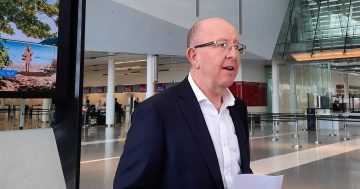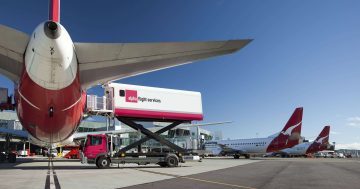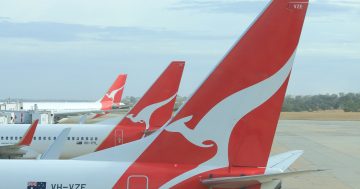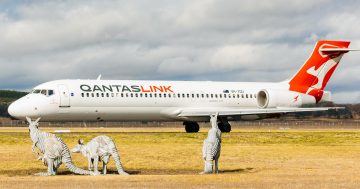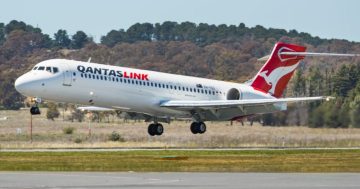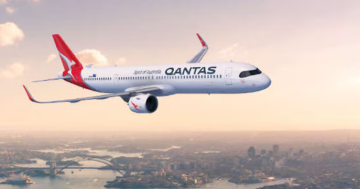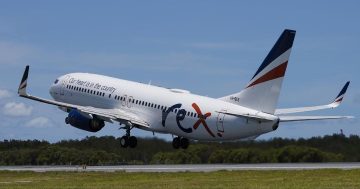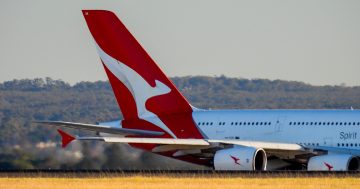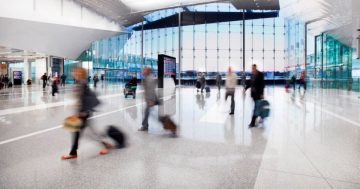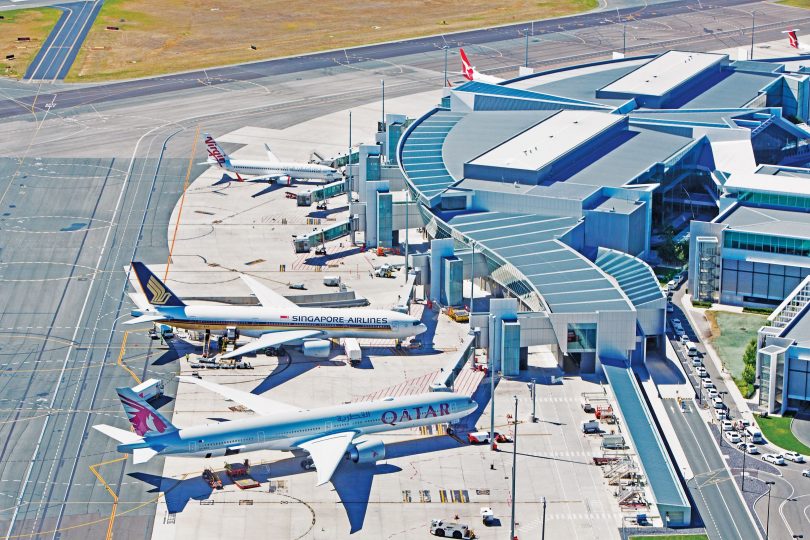
Canberra Airport has not given any details about how the travel ban will affect its financial viability. Photo: File.
Qantas has cut 131 weekly return services from Canberra Airport and Singapore Airlines has cancelled its Canberra-to-Singapore, and return-via-Sydney flights until the end of April in response to reduced demand due to COVID-19.
When asked how Canberra Airport is mitigating its financial risks and whether staff will be stood down as flights continue to be grounded, the airport was coy about what would happen to workers and contractors.
“It is not beneficial for us to comment on matters that are airline-related including their services, staff or contractors,” a Canberra Airport spokesperson told Region Media.
“These are everchanging and unprecedented times and our focus remains on taking care of our customers, keeping our business operating and supporting our staff.”
Pressure on airlines increased late this afternoon with Prime Minister Scott Morrison banning entry to Australia by anyone who is not a resident or citizen of Australia. The ban is effective from 9:00 pm Friday night (20 March).
Mr Morrison said that the vast majority of new COVID-19 cases are not transmitted on the flights themselves – which carry a relatively low transmission risk – but from an individual catching the virus from another person while travelling.
“About 80 per cent of the cases we have in Australia are either the result of someone who has contracted the virus overseas or someone who has had direct contact with someone who has returned from overseas,” Mr Morrison said.
“The overwhelming proportion of cases in Australia have been imported. Measures we have put in place have obviously put an impact on that and this is a further measure now that can be further enhanced.
“It is not about going on a plane or not going on a plane, it is where you are going to,” Mr Morrison said.
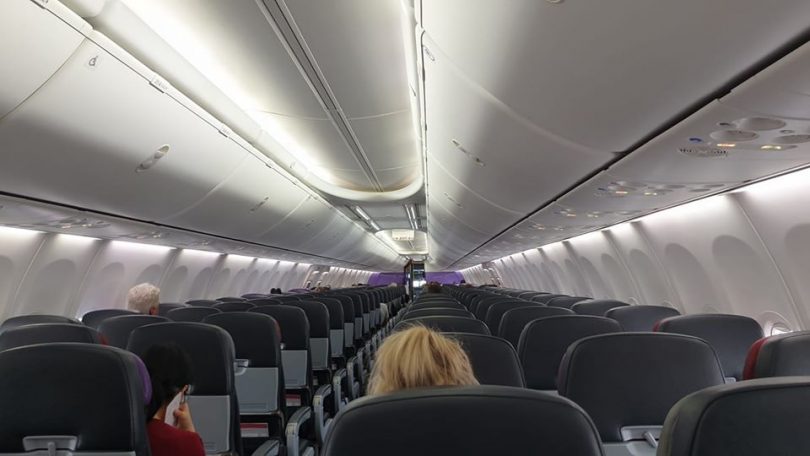
A near-empty Virgin flight this afternoon between Sydney and Ballarat. Low demand has resulted in service cancellations and staff furloughs. Photo: Andrew Messer.
Domestically, flights between Sydney and Canberra have taken the biggest hit from concerns about COVID-19, with Qantas reducing weekly return services from 116 to 38, while return services to Melbourne have been reduced from 67 to 38 per week.
Brisbane to Canberra return services have also been cut by more than 50 per cent (reduced from 35 per week to 15), and there will now only be seven return services a week from Adelaide, down from 12.
Flights between Perth and Canberra have been suspended entirely by the airline. Qantas said that the 60 per cent reduction of domestic flights will be focused on cutting frequency as opposed to destinations.
Because of the downturn, Qantas said it was necessary to temporarily stand down 20,000 employees (around 66 per cent of its workforce) until at least the end of May to preserve as many jobs as possible in the longer term.
“During the stand-down, employees will be able to draw down on annual and long service leave and additional support mechanisms will be introduced, including leave at half pay and early access to long service leave,” Qantas said Thursday morning (19 March).
“Employees with low leave balances at the start of the stand-down will be able to access up to four weeks’ leave in advance of earning it. Unfortunately, periods of leave without pay for some employees are inevitable.”
If you’re booked to fly up until 31 May 2020 and no longer wish to travel, avoid change fees by transferring the value of your fight to a flight credit. The credit may be redeemed up until 30 September 2020 or 12 months from the original date of ticket issue, whichever is later.
— Qantas (@Qantas) March 17, 2020
[Travel Advisory] SIA Offers Fee Waivers and Flexible Rebooking for All Customers. For details, visit https://t.co/4OWYHOF5nE.
— Singapore Airlines (@SingaporeAir) March 15, 2020
The Qantas board and executives have reduced their salaries to nil until at least the end of this financial year, joining the CEO Alan Joyce in taking no pay, while annual management bonuses have also been cancelled.
Qatar Airways flights between Canberra and Doha appear to be continuing as scheduled, at least until the middle of next week; however, those Australian citizens returning from any country will have to undergo a mandatory 14-day self-isolation period.
Yesterday the Australian Government issued a global ‘do not travel’ level-four travel advice – the highest travel advisory level.
DFAT advised that overseas travel is becoming more complex and difficult due to COVID-19.
“If you decide to return to Australia, do so as soon as possible,” DFAT advised as “commercial options may become less available”.
The Department of Foreign Affairs and Trade has advised all Australians who are currently overseas to return home as soon as possible as the level four travel advisory means that Australians may not be able to access consular assistance overseas should they require it.
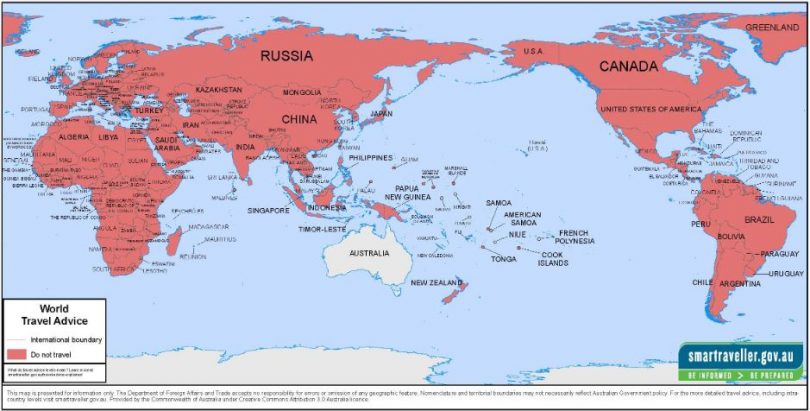
DFAT has upgraded travel warnings for every country to the highest level, recommending Australians do not travel overseas. Image: DFAT.












